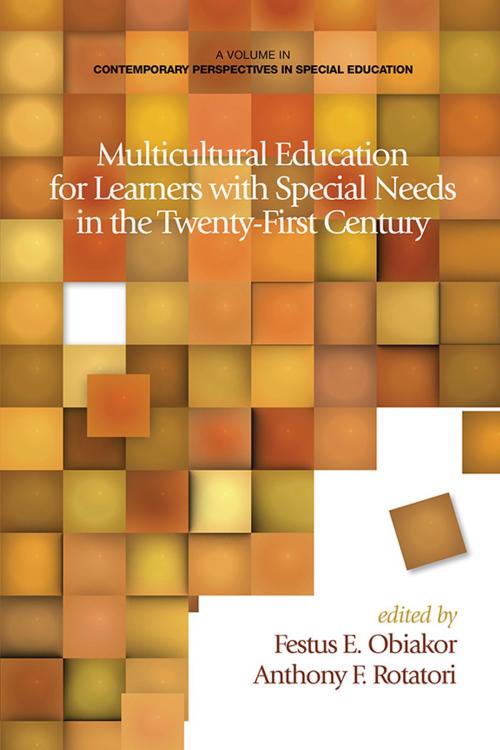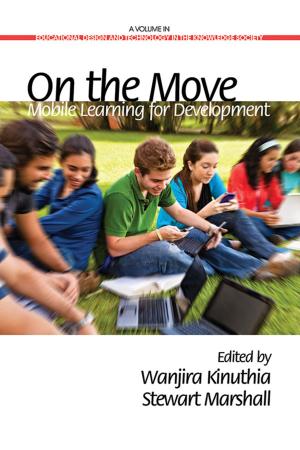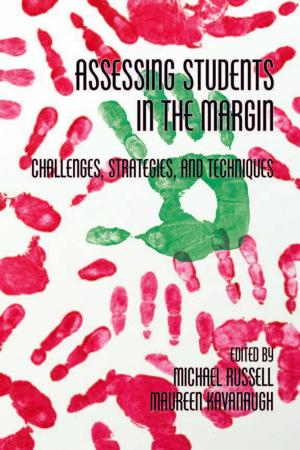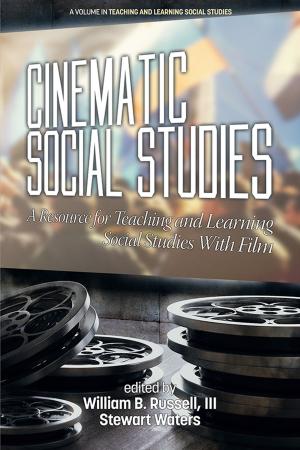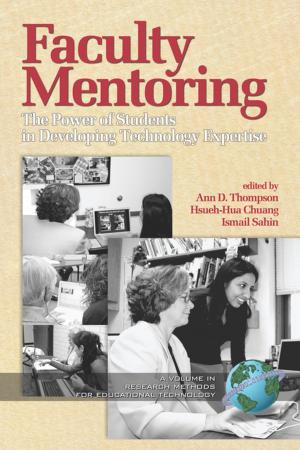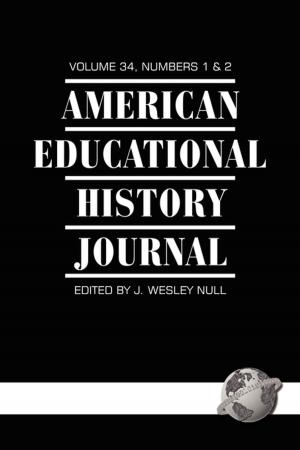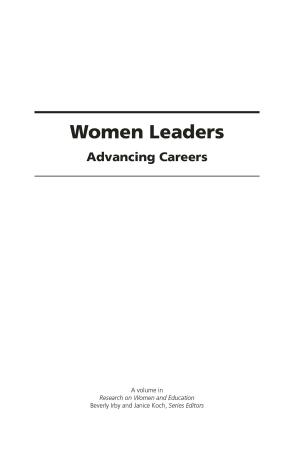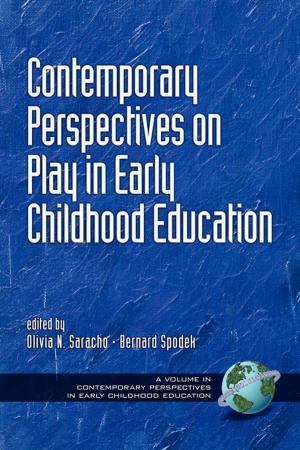Multicultural Education for Learners with Special Needs in the TwentyFirst Century
Nonfiction, Reference & Language, Education & Teaching, Educational Theory, Aims & Objectives, Multicultural Education, Special Education| Author: | ISBN: | 9781623965822 | |
| Publisher: | Information Age Publishing | Publication: | January 1, 2014 |
| Imprint: | Information Age Publishing | Language: | English |
| Author: | |
| ISBN: | 9781623965822 |
| Publisher: | Information Age Publishing |
| Publication: | January 1, 2014 |
| Imprint: | Information Age Publishing |
| Language: | English |
Multicultural Education for Learners with Special Needs in the TwentyFirst Century provides general and special educators innovative information that address the road blocks to effective practice such that diverse learners will be appropriately; identified, assessed, categorized, placed and instructed. The book provides those who instruct diverse learners comprehensive, creative and best practice chapters by scholars in the area of multicultural education. Chapter One presents a system to reduce traditional education road blocks that confront diverse learners called Culturally and Linguistically Responsive Teaching (CLRT). The CLTR system is designed to accomplish three objectives, namely, to increase student achievement, to help students develop skills to achieve economic sufficiency and to allow students to acquire citizenship skills based on a realistic and thorough understanding of the political system. Chapter Two discusses the pervasive problem of disproportionate representation of students from diverse backgrounds in special education by examining what it is, who is impacted by it, why it is occurring, and how it can be addressed using promising strategies. Chapter Three examines the use of authentic assessment to provide feedback for teachers and students, and guide the instructional process by differentiating teaching to meet the educational needs of diverse learners. Chapters Four, Five, Six and Seven address issues related to educating Latina/o Americans, African Americans, Asian Americans and Native Americans learners with special needs. Chapter Eight is a unique chapter that addresses the growing need to educate foreignborn immigrants who are now being referred to as “Today’s Special Learners in Schools”. This chapter delineates the use of the Comprehensive Support Model (CSM) to educate foreignborn learners who are identified by the authors as foreignborn English Language Learners. The CSM is recommended as a culturally sensitive intervention that integrates efforts of the self, (i.e., learner), families, school, community, and government in responding to the needs of diverse learners. Chapter Nine provides a comprehensive discussion of how Culturally Relevant Leadership (CRL) can impact educational theory and practice. The authors delineate how CRL leads to reflective practices which position teachers and administrators to become leaders in school change that can increase student success for diverse learners. Chapter Ten provides the reader with illustrative content regarding the use of technology to educate multicultural learners with special needs. Chapter Eleven delineates the culturally responsive infusion of effective behavior modification strategies that are designed to strengthen and facilitate positive behaviors for culturally and linguistically diverse learners with special needs. The book is an important addition to the education of multicultural learners with special needs as it provides much needed direction for the effective instructional practices for today’s diverse students. The book can be used as current best practices for special and general educators as well as school administrators.
Multicultural Education for Learners with Special Needs in the TwentyFirst Century provides general and special educators innovative information that address the road blocks to effective practice such that diverse learners will be appropriately; identified, assessed, categorized, placed and instructed. The book provides those who instruct diverse learners comprehensive, creative and best practice chapters by scholars in the area of multicultural education. Chapter One presents a system to reduce traditional education road blocks that confront diverse learners called Culturally and Linguistically Responsive Teaching (CLRT). The CLTR system is designed to accomplish three objectives, namely, to increase student achievement, to help students develop skills to achieve economic sufficiency and to allow students to acquire citizenship skills based on a realistic and thorough understanding of the political system. Chapter Two discusses the pervasive problem of disproportionate representation of students from diverse backgrounds in special education by examining what it is, who is impacted by it, why it is occurring, and how it can be addressed using promising strategies. Chapter Three examines the use of authentic assessment to provide feedback for teachers and students, and guide the instructional process by differentiating teaching to meet the educational needs of diverse learners. Chapters Four, Five, Six and Seven address issues related to educating Latina/o Americans, African Americans, Asian Americans and Native Americans learners with special needs. Chapter Eight is a unique chapter that addresses the growing need to educate foreignborn immigrants who are now being referred to as “Today’s Special Learners in Schools”. This chapter delineates the use of the Comprehensive Support Model (CSM) to educate foreignborn learners who are identified by the authors as foreignborn English Language Learners. The CSM is recommended as a culturally sensitive intervention that integrates efforts of the self, (i.e., learner), families, school, community, and government in responding to the needs of diverse learners. Chapter Nine provides a comprehensive discussion of how Culturally Relevant Leadership (CRL) can impact educational theory and practice. The authors delineate how CRL leads to reflective practices which position teachers and administrators to become leaders in school change that can increase student success for diverse learners. Chapter Ten provides the reader with illustrative content regarding the use of technology to educate multicultural learners with special needs. Chapter Eleven delineates the culturally responsive infusion of effective behavior modification strategies that are designed to strengthen and facilitate positive behaviors for culturally and linguistically diverse learners with special needs. The book is an important addition to the education of multicultural learners with special needs as it provides much needed direction for the effective instructional practices for today’s diverse students. The book can be used as current best practices for special and general educators as well as school administrators.
